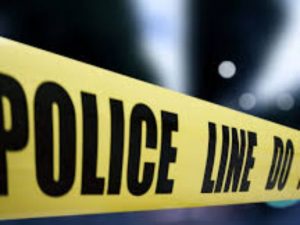(Akiit.com) It didn’t take long for the predictable. Loose-lipped former Illinois congressman Joe Walsh frothed at President Obama in the aftermath of the slaying of five Dallas police officers and the wounding of several others. Presumptive GOP presidential candidate Donald Trump couldn’t tweet fast enough denouncing the murders. Needless to say Walsh and Trump were stone silent on the police slayings of Philando Castile in Minnesota and Alton Sterling in Louisiana. The idiotic threat and veiled blame of Obama for the killings by Walsh, and the empty tear denunciation by Trump are the exact reason that a number of civil rights groups quickly condemned the Dallas police killings and conveyed heartfelt sympathy for the slain officers and their families. This is not new. After the slaying of two police officers in New York City in 2014, nearly every activist organization in the forefront of the protests over the police killings of Michael Brown, Eric Garner, Tamir Rice, and Ezell Ford as well as their family members, instantly issued a strong condemnation of the killings.
The Brown and Garner family members went further and expressed outrage at the killer’s alleged Instagram rants that claimed he killed the officers in revenge for the Brown and Garner killings. In Dallas, no less, the report that the alleged gunman, Micah Xavier Johnson, targeted “white police officers” should stir the same outrage. Killing police in the crackpot, misguided belief that this somehow is payback for the police killings of innocent blacks is dangerous and delusionary. This is the very thing that gives Trump, Walsh, some  police groups and conservative talking heads an even bigger pile of ammunition to scream that civil rights groups, police violence protestors, and even Obama, have the officers blood on their hands.
police groups and conservative talking heads an even bigger pile of ammunition to scream that civil rights groups, police violence protestors, and even Obama, have the officers blood on their hands.
But this is only part of reason that civil rights groups condemn all violence whether committed by or against the men and women in blue. There’s the recognition that the overwhelming majority of police officers are dedicated, conscientious public servants who genuinely are committed to protecting communities from crime and violence — black lives do matter to them. This was evident in Dallas. Police officials there were hands on in working with community groups the planning of a peaceful protest rally held moments before the killings.
There is also the recognition that officers do face real dangers. The National Law Enforcement Officers Memorial Fund notes that there was a sharp increase in the number of law enforcement fatalities in 2014. This was cause for alarm. The number killed had jumped to roughly 120 and this represented a nearly 25 percent increase over 2013. It reversed a trend of the past decade where the number of officers killed in the line of duty had decreased.
There also was the real fear that all it takes is the crazed act of one unhinged individual to derail the growing recognition on the part of a wide body of the public and many public officials that police violence is a major legal and public policy issue that cannot be ignored. The first steps have been taken toward opening a national dialogue between law enforcement officials, the Obama administration, the Justice Department, and many city and state officials on reforms that could be made to address the problem.
They include the full authorization and use of body cameras, a grand jury system overhaul, the systematic tracking of the number of civilians killed by police officers, the appointment of independent investigators and prosecutors in officer involved shootings, and a revamp of policies and procedures on the use of and punishment of excessive force violations by officers. The real danger is that a nut act like the Dallas police killings can wipe that progress off the board.
There’s more. The killings heighten tensions between police, many of whom are already on edge, and minority communities. The killings can harden the attitudes of some police officers, thicken the thin blue line into a siege mentality of us versus them. This can have deadly consequences on the streets and put even more civilians in harm’s way if police officers feel that their only recourse in a conflict situation, no matter how innocuous it may seem, is to resort to deadly force. The killing of a police officer always stirs anger, outrage and fear among many officers who instantly identify with and feel the pain of a slain officer. This would escalate the vicious cycle of violence and more violence as the accepted way to handle police-civilian encounters.
The best and most effective way to insure officer safety is still to strengthen proactive, positive police community dialogue, outreach and engagement. It was telling that even in the backdrop of the heinous murder of the officers, Dallas Police Chief David Brown, an African-American, had this thoughtful and sobering plea, “All I know is that this must stop — this divisiveness between our police and our citizens.” This is a plea that we must heed as passionately when the victims of police violence are Sterling and Castile, or unarmed blacks anywhere, or the victims of violence are police officers in Dallas or anywhere else. The violence against both are our worst nightmares.
Columnist; Earl Ofari Hutchinson
Official website; http://twitter.com/earlhutchins









Leave a Reply